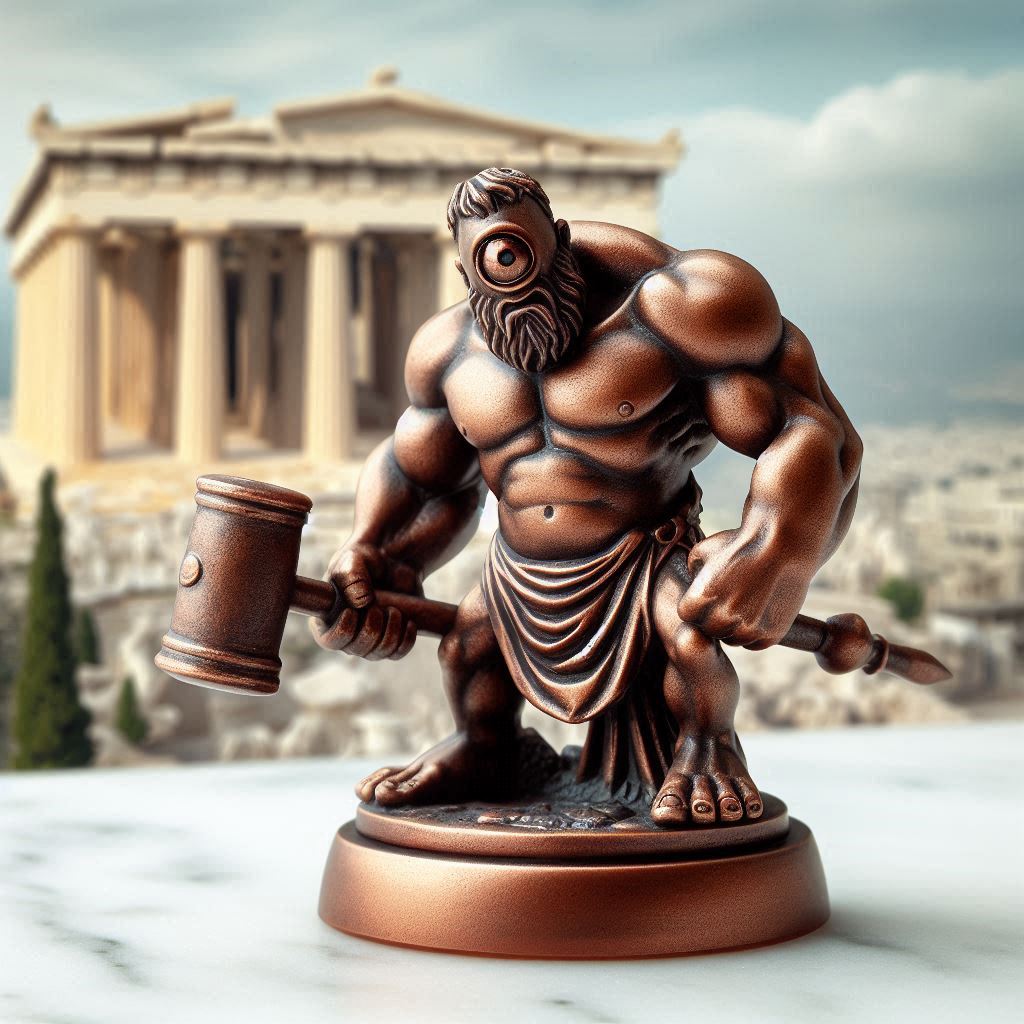In the rich tapestry of Greek mythology, few creatures capture the imagination quite like the Cyclopes. These one-eyed giants, with their immense strength and formidable presence, have fascinated storytellers and scholars for centuries. From their role as formidable adversaries to their depiction as skilled craftsmen, the Cyclopes are central figures in various myths and legends. In this blog post, we’ll explore the origins, characteristics, and notable appearances of the Cyclopes in ancient Greek mythology.
Table of Contents
- Origins of the Cyclopes
- Characteristics and Abilities
- Famous Cyclopes in Mythology
- Cyclopes in Art and Culture
- Conclusion
- Interesting Facts About Cyclopes
Origins of the Cyclopes
The Cyclopes, deriving their name from the Greek words "kyklos" (circle) and "ops" (eye), are first mentioned in Homeric epics. According to Greek mythology, they are descendants of Zeus and Gaia (the Earth). The three primordial Cyclopes—Brontes, Steropes, and Arges—were known for their enormous size and single eye in the middle of their forehead. They were skilled blacksmiths who forged powerful weapons for the gods, including Zeus' thunderbolts.

Characteristics and Abilities
The Cyclopes are renowned for their imposing stature and extraordinary strength. Their single eye is not only a defining feature but also a symbol of their unique perception and power. Unlike other mythological giants, the Cyclopes are often depicted with a more rudimentary, albeit formidable, approach to their strength. They are less concerned with strategy and more focused on sheer physical power. This raw strength is evident in their ability to craft divine weapons and tools, showcasing their unparalleled craftsmanship.
Famous Cyclopes in Mythology
Several Cyclopes stand out in Greek myths:
- Polyphemus: Perhaps the most famous Cyclops, Polyphemus appears in Homer’s "Odyssey". He is depicted as a fearsome giant who captures Odysseus and his men in his cave. Through cunning and bravery, Odysseus manages to blind Polyphemus and escape, demonstrating the cleverness and resourcefulness that contrasts with the brute strength of the Cyclops.

- Brontes, Steropes, and Arges: These three primordial Cyclopes are notable for their role as skilled artisans. They are credited with crafting Zeus' thunderbolts, Poseidon's trident, and Hades' helmet of darkness, contributing significantly to the gods' victories and dominance in the mythological cosmos.
Cyclopes in Art and Culture
Cyclopes have been a popular subject in art and literature throughout history. In ancient Greek art, they are often depicted in vase paintings and sculptures, emphasizing their one-eyed, giant stature. Modern adaptations have continued to explore and reimagine these creatures, from literature and film to video games and comics. Their portrayal ranges from fearsome adversaries to tragic figures, reflecting the versatility and enduring intrigue of Cyclopean mythology.
Conclusion
The Cyclopes, with their towering presence and singular eye, embody the raw power and mystery of Greek mythology. Their stories, from crafting divine weapons to engaging in epic battles, reveal a fascinating blend of strength and artistry. As both villains and creators, the Cyclopes remain a powerful symbol of the ancient Greeks' imagination and creativity. Their legacy continues to captivate audiences and inspire new interpretations, ensuring their place in the annals of mythological lore.
Interesting Facts About Cyclopes
- Single Eye Symbolism: The Cyclopes’ single eye often represents a unique form of perception and insight, setting them apart from other mythical beings.
- Craftsmen of the Gods: The primordial Cyclopes are credited with crafting some of the most important divine artifacts, highlighting their role as creators in addition to their fearsome reputation.
- Literary Impact: Polyphemus' encounter with Odysseus is one of the earliest examples of the hero's journey trope, influencing countless literary works throughout history.
- Modern Interpretations: Cyclopes have been reimagined in various forms of media, from films like Clash of the Titans to video games like God of War, showcasing their enduring appeal and versatility.


